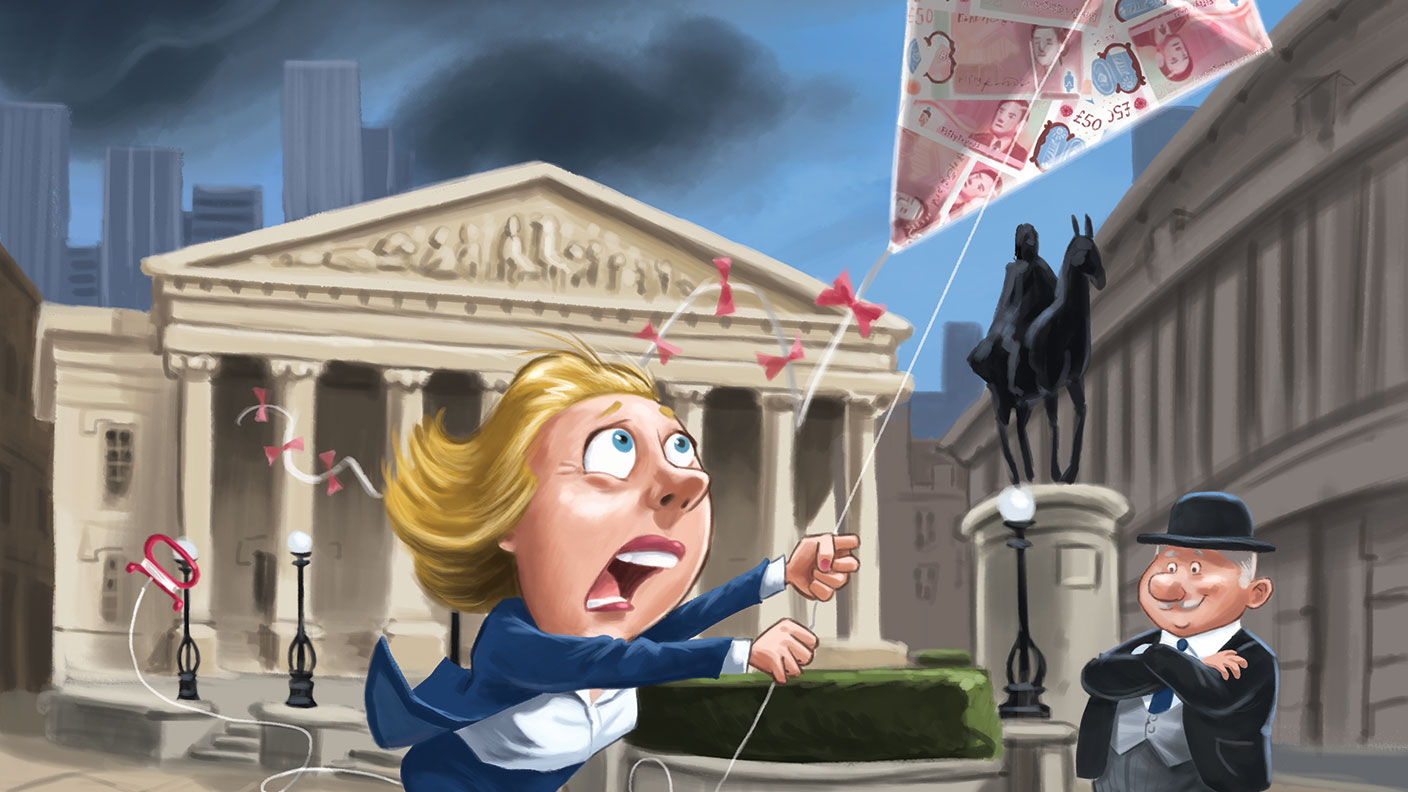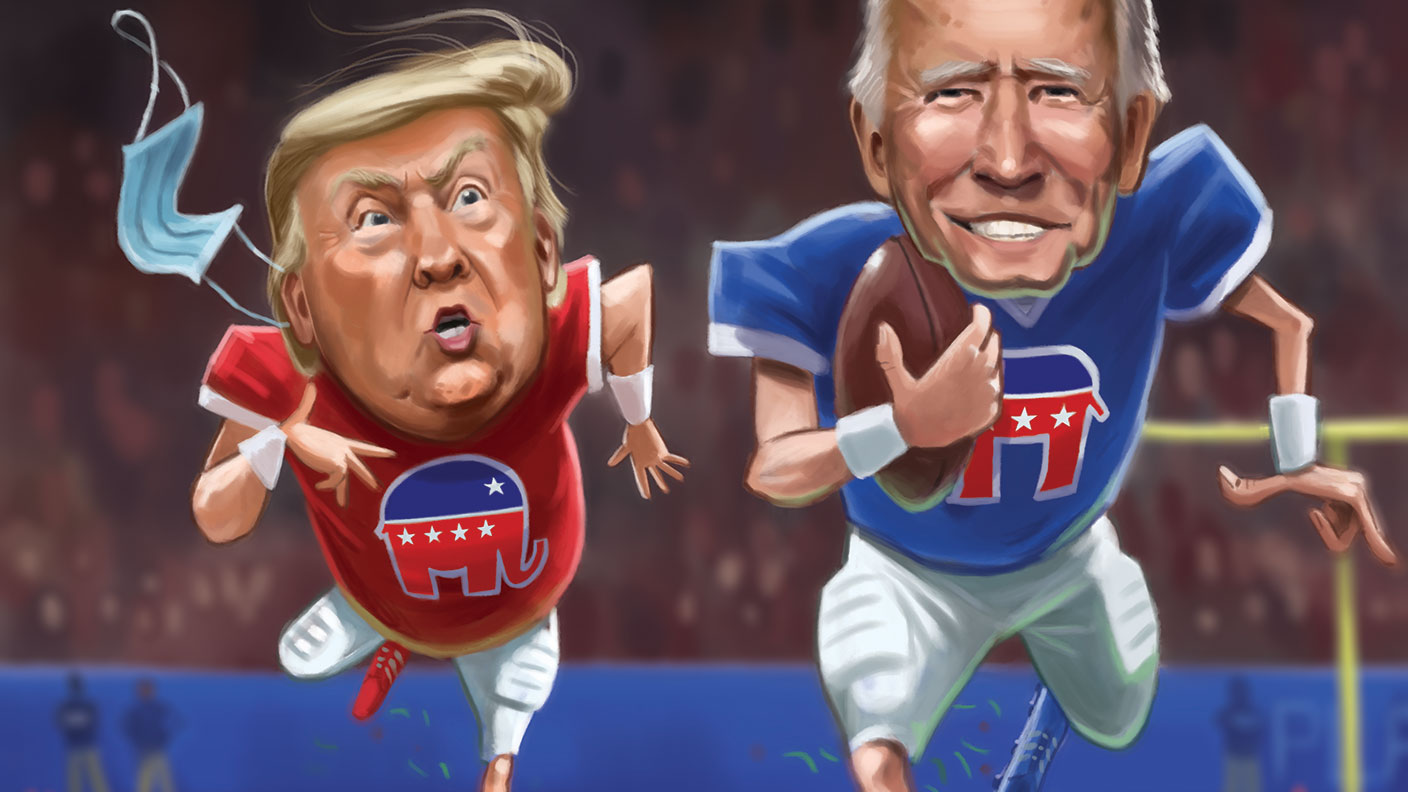China: Asia’s next success story
Ignore the gloomsters, says Rupert Foster. Growth will slow for now, but the economy is undergoing a healthy transition to consumer-driven growth. The process will prove stronger than demographic headwinds.

Get the latest financial news, insights and expert analysis from our award-winning MoneyWeek team, to help you understand what really matters when it comes to your finances.
You are now subscribed
Your newsletter sign-up was successful
Want to add more newsletters?

Twice daily
MoneyWeek
Get the latest financial news, insights and expert analysis from our award-winning MoneyWeek team, to help you understand what really matters when it comes to your finances.

Four times a week
Look After My Bills
Sign up to our free money-saving newsletter, filled with the latest news and expert advice to help you find the best tips and deals for managing your bills. Start saving today!

This article is the second in a two-part cover story. Read Jonathan Compton's counter argument here:China will get old before it gets rich
Larry Kudlow, Trump's main trade adviser, said last August that the Chinese economy "looks terrible". Stockmarket investors appear to agree. The Chinese domestic A-share market has slid by a fifth this year and the renminbi is down 7%. Foreign investors' favourites such as internet giants Alibaba and Tencent are down by at least 30% from their 2018 highs. GDP growth fell to 6.5% year-on-year in the latest quarter, compared with 6.9% in 2017 as a whole. Some analysts expect 6.1% in 2019.
China's temporary struggles may reinforce President Donald Trump's belligerence. He calculates that if the US pushes hard against the Chinese economy it will prove to be a "paper tiger" and collapse. To stave off a slump, China will be forced to sign a new Treaty of Nanking (the one-sided treaty forced on China by the UK at the end of the First Opium War in 1842, which broke open imperial China to foreign trade). Shortly before Kudlow's statement on the health of the Chinese economy, he said, "I'm not a China expert, although I'm boning up as fast as I can". But would a teacher give him a pass grade for his economic assessment? Spoiler alert: no.
MoneyWeek
Subscribe to MoneyWeek today and get your first six magazine issues absolutely FREE

Sign up to Money Morning
Don't miss the latest investment and personal finances news, market analysis, plus money-saving tips with our free twice-daily newsletter
Don't miss the latest investment and personal finances news, market analysis, plus money-saving tips with our free twice-daily newsletter
Jinping is preparing to follow...
Last year saw the anointment of Xi Jinping as the paramount leader. As with most politicians he was keen for the economy to be in tip-top condition for his arrival, so the economy was pump-primed to perfection. As a result, 2018 has seen a commensurate slowdown as the stimulus has abated and the government's current dominant economic policy deleveraging has held sway. Debt within the Chinese economy has been rising faster than GDP growth since 2009 but in 2018 will come in below GDP growth. So it is embarking on the process of lowering the debt burden as a proportion of GDP. Deleveraging is crucial to China's long-term economic future, but it is negative for growth in the short run. Public sector capital investment, where much of the debt has been racked up, is now down on a year-on-year basis.
This highlights the important shift that has been made in the Chinese economy: it is no longer about size but the quality of growth. All economies that have successfully moved through the tricky middle-income problem (some countries have got stuck in a middle phase of development and never quite emerged as rich states) have done so as consumer-led economies. In 2008 China's consumption as a percentage of GDP was as low as 37% but over the following ten years that has risen to 42%-43%. The figure is set to rise much further as China gets richer and the middle class expands. Bain, a consultancy, expects household consumption to grow by 6% a year between 2016 and 2027, reaching a value of $8.2trn almost double the current figure.
... a north Asian development blueprint
China is the fourth north Asian state-driven economy to go through this process. Japan led the way, with South Korea and Taiwan then following. The period when each transitioned towards consumer-led growth saw steep slowdowns in overall GDP growth but dramatic rises in their stockmarkets as investors approved the shift towards sustainable long-term growth and new-found earnings quality. Note, too, that this is also the phase when each of the other north Asian economies created home-grown exporting champions such as Sony and Samsung. China's 2025 economic plan foresees domination of the global market for semiconductors and electric vehicles.
Consumption in China this year has been soft but this is almost entirely due to two sub-sectors vehicles and home appliances. Both these sub-sectors have connections to credit markets as consumers use finance for purchases. The government has been trying to regulate the booming online credit market more rigorously. As is the way with all new markets in China, thousands of companies crowded into the space offering super-aggressive deals.
The state has now barred some of the smaller players, but at the cost of a noticeable credit crunch for low-to-mid income citizens in the first half of this year. Credit growth rates will start to return to normal as the clampdown eases next year. Bear in mind that consumer credit levels in China are dramatically lower than Western ones, in any case. Most house purchases are still made without a mortgage.
Tackling bad debts
So where is the real weakness? Well, Larry Kudlow would point to the mountains of debt still sitting in China and rising defaults as a sign that a collapse is round the corner. It is undeniable that defaults are rising, but they are still at very low levels compared with Western economies that are generally perceived to be in good nick. However, the defaults issue does highlight one of the main concerns for investors in China. The perception is that the government does not want any bad news to get out. So when it does appear, markets think the real situation must be much worse.
China does have a bad debt problem which probably adds up to 10%-15% of GDP. The government is slowly bringing this situation into the open air with a controlled default process. This will take many years and will slow down and speed up depending on the economic backdrop and the battles taking place in the internecine world of Chinese Communist Party politics.
We will never know what is happening but all we can be sure of is that the amount of bad debt is not large enough to force a collapse, mostly because the government is both the lender and the borrower in at least 70% of bad debt situations: state-owned banks and companies are the main owners of bad debts. This is a managed process. Its speed will in turn determine how fast China moves through the middle-income problem. But as long as the process keep going, the Middle Kingdom will get there in the end.
Complete control of the currency
Bears also point to the renminbi/US dollar exchange rate. Many investors think that if the currency weakens quickly, then Chinese nationals must be deserting the sinking ship, sending their cash abroad. China undeniably has a potential problem here. The $3trn of foreign exchange reserves could in principle be swamped by money leaving the country. However, the government has largely closed the capital account, so money can't leave and the renminbi is not a freely circulating currency. The central bank is utterly in control. The weakness of the renminbi this year thus reflects a managed devaluation to offset the effects of Trump's tariffs and encourage Chinese exports to other nations. This process does not look over. As US rates continue to rise and Chinese rates start falling the renminbi should breach seven to the dollar and slide into the 7.2-7.3 range. This may trigger a series of "China tailspin" headlines and market weakness. For us bulls, however, this will be the next wonderful buying opportunity.
Meanwhile, could Trump's tariffs derail the economy? No. China exports more to the rest of Asia than it does to the US, and it will be able to steadily reduce its dependence on selling to the world's biggest economy. The trade war undermines sentiment, but it is not a central issue. Nor should investors pay too much attention to another perennial worry about China: demographics.
Demographics don't matter for now
The working population has peaked in China and is falling slowly. However, this problem will be negated by urbanisation over the next few years. At present there are still 200-300 million people too many working in agriculture. This is mostly because in China if you are a farmer you cannot sell your land. Without being able to sell your land, too many farmers stay on their very small plots in the country. Their children are also discouraged from moving to cities by the Hukou system: you can usually only consume government services in the area where you were born. These two factors mean that urbanisation is around 10% below where Japan and Korea were at this stage of their development. The urban workforce will thus keep rising for the next 10-15 years. Urbanisation spurs productivity and growth as industries and knowledge cluster in cities and economies of scale develop. The overall demographic picture won't be an issue for a decade and a half.
Play the consumption outlook
The upshot is that Chinese GDP will slow for the next few years. But this is a corollary of deleveraging and regulatory changes. The key is the consumption picture. As long as this remains strong, everything is fine. Indeed, this week it emerged that e-commerce group Alibaba (China's Amazon equivalent) set a new record during the 24-hour Singles Day shopping festival. Sales reached $30.8bn, up from $25bn last year.
The valuations of Alibaba (NYSE: BABA) and other top Chinese firms have collapsed along with the market this year. That spells opportunity. Alibaba recently reported overall sales growth of more than 50% in the quarter to the end of September. Its e-commerce division (one of many internet businesses) is now trading at just 15-20 times earnings. Amazon's e-commerce business is on a price-earnings ratio (p/e)of 80. Alibaba is the dominant company in the largest and fastest growing e-commerce market in the world and is now starting to expand overseas.
Consider also Facebook-equivalent Tencent (Nasdaq: TCEHY). Its video gaming business is on a p/e of 10-15 and its social media advertising arm costs 20 times earnings. Both can look forward to many years of double-digit growth.
Investors should also consider two investment trusts that focus largely on the long-term growth of consumption Alibaba and Tencent are the top two holdings in both cases. They are the JPMorgan Chinese Investment (LSE: JMC) and the Fidelity Special Situations (LSE: FCSS) trusts. They are on respective discounts to net asset value of 11% and 10%.
Get the latest financial news, insights and expert analysis from our award-winning MoneyWeek team, to help you understand what really matters when it comes to your finances.
Rupert is an investment strategist and adviser at J & C Foster, providing Asian, Consumer and Global Equities Strategy advice to a number of family offices and portfolio management organisations. He writes on Asia and Global Macroeconomics for a number of investment publications including MoneyWeek and HL Investment Times.
-
 Should you buy an active ETF?
Should you buy an active ETF?ETFs are often mischaracterised as passive products, but they can be a convenient way to add active management to your portfolio
-
 Power up your pension before 5 April – easy ways to save before the tax year end
Power up your pension before 5 April – easy ways to save before the tax year endWith the end of the tax year looming, pension savers currently have a window to review and maximise what’s going into their retirement funds – we look at how
-
 Governments will sink in a world drowning in debt
Governments will sink in a world drowning in debtCover Story Rising interest rates and soaring inflation will leave many governments with unsustainable debts. Get set for a wave of sovereign defaults, says Jonathan Compton.
-
 Why Australia’s luck is set to run out
Why Australia’s luck is set to run outCover Story A low-quality election campaign in Australia has produced a government with no clear strategy. That’s bad news in an increasingly difficult geopolitical environment, says Philip Pilkington
-
 Why new technology is the future of the construction industry
Why new technology is the future of the construction industryCover Story The construction industry faces many challenges. New technologies from augmented reality and digitisation to exoskeletons and robotics can help solve them. Matthew Partridge reports.
-
 UBI which was once unthinkable is being rolled out around the world. What's going on?
UBI which was once unthinkable is being rolled out around the world. What's going on?Cover Story Universal basic income, the idea that everyone should be paid a liveable income by the state, no strings attached, was once for the birds. Now it seems it’s on the brink of being rolled out, says Stuart Watkins.
-
 Inflation is here to stay: it’s time to protect your portfolio
Inflation is here to stay: it’s time to protect your portfolioCover Story Unlike in 2008, widespread money printing and government spending are pushing up prices. Central banks can’t raise interest rates because the world can’t afford it, says John Stepek. Here’s what happens next
-
 Will Biden’s stimulus package fuel global inflation – and how can you protect your wealth?
Will Biden’s stimulus package fuel global inflation – and how can you protect your wealth?Cover Story Joe Biden’s latest stimulus package threatens to fuel inflation around the globe. What should investors do?
-
 What the race for the White House means for your money
What the race for the White House means for your moneyCover Story American voters are about to decide whether Donald Trump or Joe Biden will take the oath of office on 20 January. Matthew Partridge explains how various election scenarios could affect your portfolio.
-
 What’s worse: monopoly power or government intervention?
What’s worse: monopoly power or government intervention?Cover Story Politicians of all stripes increasingly agree with Karl Marx on one point – that monopolies are an inevitable consequence of free-market capitalism, and must be broken up. Are they right? Stuart Watkins isn’t so sure.
